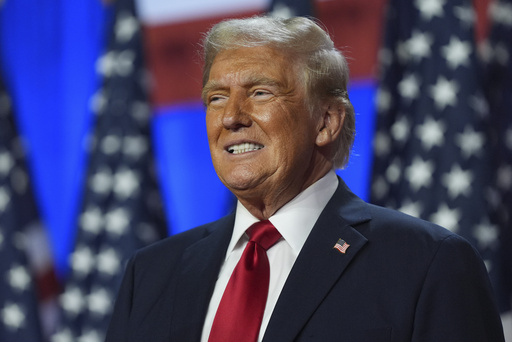
MANAMA, Bahrain — This past weekend, elegant ballrooms in the Middle East served as venues for critical discussions surrounding the ongoing conflicts in the region, focusing primarily on one pivotal question: What changes will occur following the inauguration of U.S. President-elect Donald Trump next month?
Conferences held in Bahrain and Qatar, two neighboring autocracies with a complex history of rivalry, featured open discussions, private conversations, and casual exchanges among politicians, diplomats, and military leaders regarding the implications of Trump’s presidency.
There are numerous factors sparking these discussions, notably the Israel-Hamas conflict in the Gaza Strip, which has resulted in over 44,000 Palestinian fatalities, as well as the fragile ceasefire in Lebanon. The current war has been fueled by Hamas’s assault on Israel on October 7, 2023, which claimed the lives of 1,200 individuals and led to the abduction of 250 others. Such actions have ignited outrage across the broader Arab region.
The Biden administration’s strong support for Israel has alienated several of America’s allies. In a direct reference to Trump’s statements regarding the ongoing wars, Saudi Prince Turki al-Faisal, who has served as the kingdom’s intelligence chief and has held ambassadorial roles in the U.S. and the U.K., addressed the matter at the Manama Dialogue hosted by the International Institute for Strategic Studies.
“Regional allies are optimistic that Mr. Trump will revisit his previous efforts to establish genuine PEACE in the Middle East,” the prince remarked. “Countries in the Gulf, including Saudi Arabia, stand ready to collaborate with you, Mr. President, to bring about this honorable change. Now is the time for the United States, under your leadership, to modify its approach to this troubled region.”
Prince Turki emphasized the longstanding Saudi demand for a two-state solution to resolve the Israeli-Palestinian conflict. He advocates for a Palestinian capital located in East Jerusalem, alongside borders from 1967 that grant full control to the Palestinians over Gaza and the West Bank. However, Trump’s previously announced peace proposal in 2020 heavily favored Israeli Prime Minister Benjamin Netanyahu’s hardline nationalist agenda, sidelining key Palestinian aspirations.
The Biden administration had not made substantial progress on the conflict before the Hamas attack. Barbara A. Leaf, a top official at the U.S. State Department for the Middle East, remarked that the assault by Hamas “plunged the region into renewed conflict” during her comments at a Bahrain side event.
During the Doha Forum in Qatar, Norway’s Foreign Minister Espen Barth Eide described the state of the Middle East prior to the October 7 attacks as unstable and precarious. However, he suggested that Trump’s past successes in negotiating diplomatic recognition deals for Israel with Bahrain and the United Arab Emirates might lay the groundwork for a broader peace agreement.
He stated, “The message from this region indicates that achieving a major deal is feasible, but it must involve Palestine,” adding that the absence of a resolution to the Palestinian issue ties together multiple conflicts across the region, including the one in Yemen.
In Yemen, Houthi rebels, who have seized control of the capital for more than ten years, are garnering attention in the Arab world due to their aggressive actions in the Red Sea and Gulf of Aden. Trump had labeled the Houthis a foreign terrorist organization, a designation that the Biden administration removed in an effort to facilitate humanitarian assistance in Yemen.
Analyst Mohammed al-Basha contended that the incoming Trump administration is likely to impose stringent sanctions on the Houthis, which he believes could provoke retaliation rather than fostering peace and stability in the area.
The complex situation surrounding Iran’s nuclear ambitions also looms large; the head of the International Atomic Energy Agency recently warned that Tehran is poised to significantly increase its stockpile of uranium that is close to weapons-grade. Yet there is speculation among Iranian officials and the public regarding the possibility of negotiations under a Trump administration, despite his prior unilateral withdrawal from the 2015 nuclear deal with global powers.
Finally, discussions among summit attendees also touched on the evolving dynamics among the Gulf states. Some participants expressed their plans to attend both summits, a feat not possible during the ongoing Qatar crisis that lasted from 2017 until January 2021, during which Bahrain, Egypt, Saudi Arabia, and the UAE severed ties with Qatar. This crisis began shortly after Trump’s inaugural foreign trip to Saudi Arabia.
In conclusion, as the region awaits the swearing-in of President-elect Trump, there exists a myriad of potential diplomatic shifts on the horizon, with key players voicing their hopes for renewed peace initiatives in the tumultuous Middle East.
